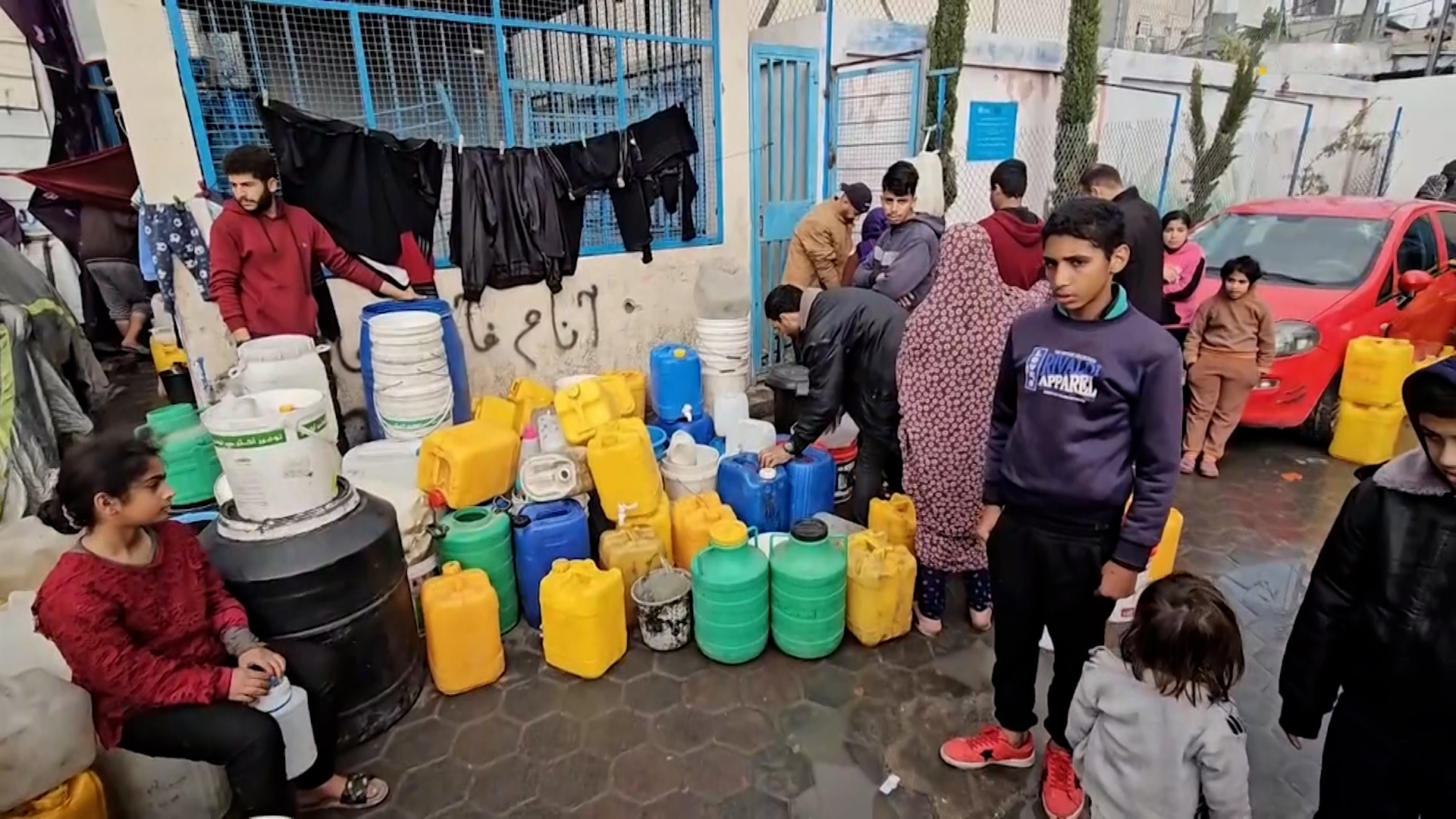play videoplay video
Video duration 03 minutes 21 seconds 03:21
Since the early morning hours, Abdullah Al-Harazin begins his hard day in the Al-Rimal neighborhood in Gaza City, constantly searching for a source of potable water for his family. Al-Harazin wanders with an empty gallon of water in his hand, between neighborhoods, roads, and alleys, moving with heavy steps that bear the burden of constantly searching for a source of potable water for his family.
Since October 7, Israel has destroyed most of the roads and water wells during its aggression against the Gaza Strip. This prompted the city's residents to drink polluted water, according to Hosni Muhanna, spokesman for the Gaza City municipality.
The young man, “Al-Harazin,” crosses the city’s streets with a sad look in his eyes, among the rubble, roads, sewage networks, and wells destroyed by the Israeli war on the Gaza Strip, to search for water, even that accumulated in the streets.
Al-Harazin's sons were exposed to the disease as a result of consuming old well water, which was salty and polluted, which prompted him to search for long hours in a desperate attempt to find a source of clean water, but to no avail.
Al-Harazin told the German News Agency: “My children suffered from diarrhea and severe colic as a result of drinking the salty and polluted water that we extract from a water well that has not been used for years.”
Unpleasant color and smell
He added: "Unfortunately, the water we extract from the well has an unpleasant color and smell, but we boil it over a wood fire before we drink it, and there is no alternative to that. We are forced to drink it in order to stay alive."
The suffering of water shortages is not limited to one family in the Gaza Strip, but extends to touch the lives of many families and residents in the northern areas of the Gaza Strip and Gaza City. This shortage comes after the Israeli army withdrew from those areas, leaving behind great devastation.
In one of the narrow alleys in Gaza City, Samira Saada, 33 years old, is waiting for her turn in a line that extends to hundreds of people, gathering to get a “gallon” of water from the well that was dug in one of the streets at the initiative of the residents.
Saada told the German News Agency: “After long hours of waiting, I get salt water and heat it until it boils in order to sterilize it. After that, I wait for it to cool and then I water it for my children or prepare soup with it.”
Saada adds with sadness in her voice: “Simply, obtaining water in the Gaza Strip has become extremely difficult due to the war, and even when we do get water, it is often polluted and salty.”
She continued: "We have no alternative but salt water, even though it harms our health and the health of our children, as children always suffer from colic and diarrhea."
Saada dreams of obtaining safe drinking water, as well as the possibility of obtaining food and milk for her three children.
Sentenced to death
The Euro-Mediterranean Human Rights Monitor, an independent, non-profit organization active in Geneva, said in a statement: “The areas of Gaza City and the northern Gaza Strip are facing a horrific tragedy resulting from the catastrophic scarcity of sources of potable water and the prevention of access to it, which constitutes an actual death sentence.” ".
The Observatory added: “Thirst is shockingly sweeping the areas of Gaza City and its north due to the cutting off of water supplies to the Gaza Strip and the systematic and deliberate Israeli bombing of water wells and sources, in addition to the lack of fuel necessary to operate water conversion and distribution stations.”
Euro-Med warned that the lack of drinking water in the Gaza Strip has become a matter of life and death, at a time when residents are forced to use unclean water from wells, which has contributed to the spread of transmitted and infectious diseases, especially with the electricity outage, which has contributed to the shortage of supplies. Water.
According to the Palestinian Water Authority, the ongoing Israeli military attacks have destroyed the water infrastructure in the Gaza Strip, including at least 56% of the water wells in Gaza City and the northern Strip, according to the Observatory’s statement.
Source: German + Al Jazeera

